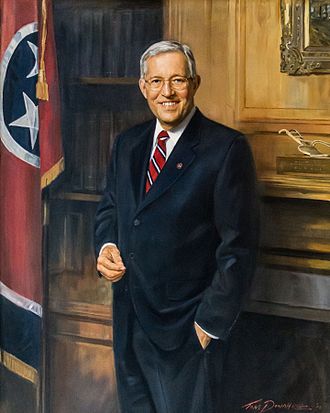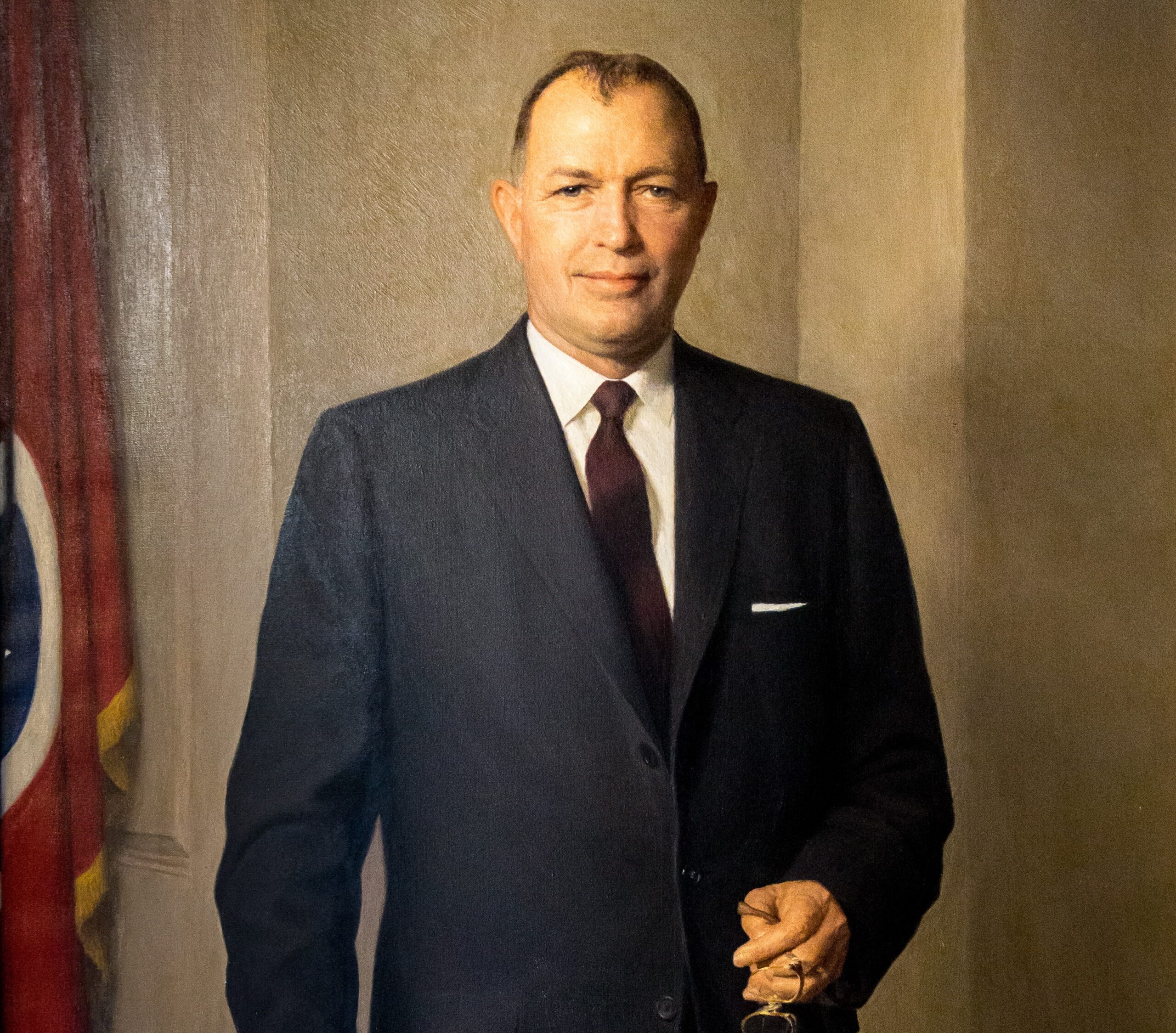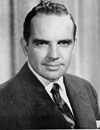Tennessee
Gov. William Gannaway Brownlow
- April 5, 1865 - February 25, 1869
- Whig/Know-Nothing
- August 29, 1805
- April 28, 1877
- Virginia
- Married Eliza O'Brien; six children
- Senator
About
Born in Wythe County, Virginia, WILLIAM GANNAWAY BROWNLOW moved to East Tennessee, where he was orphaned at the age of eleven. He worked on his uncle’s farm in Virginia for seven years during his youth, following which he was a carpenter for three years. At the age of twenty-one, he joined the Methodist church as a minister “on trial,” and served for ten years as a member of the Holston Methodist Conference, an Appalachian area of Virginia, Tennessee, North Carolina, and South Carolina. In 1850 he was appointed by President Millard Fillmore to carry our congressional provisions for improvement of navigation. A talented writer as well, he established the The Whig in Elizabethon, which appeared under different names for more than a quarter century. His involvement in political affairs was linked to his journalism. An ardent Whig and Unionist, he was arrested in 1861 on a charge of treasonable editorials and was imprisoned. After receiving a pardon from Military Governor Andrew Johnson, he eventually revived his newspaper in Knoxville and became an agent for the U.S. Treasury. Early in 1865, Tennessee’s Unionists created their own Constitutional Convention and proceeded to free the state’s slaves, repudiate the secession ordinances and Confederate debts, and call for elections, nominating Brownlow for governor. As Tennessee’s Radical Republican governor during Reconstruction, Brownlow ruled with a dictatorial hand, disenfranchising a majority of citizens, who had supported the Confederacy. He was reelected in 1867 and though in ill health was elected to a U.S. Senate seat by the state legislature, which resulted in his resignation as governor. After serving one term in the Senate, he returned to Knoxville and was a partner in establishing the Weekly Whig and Chronicle. He died two years later.
Source
Biographical Directory of the U.S. Congress
The National Cyclopaedia of American Biography, Vol. 7. New York: James T. White & Company.
Philips, Margaret I. The Governors of Tennessee. Gretna, LA: Pelican Publishing Company, 2001.
Sobel, Robert, and John Raimo, eds. Biographical Directory of the Governors of the United States, 1789-1978, Vol. 4. Westport, CT: Meckler Books, 1978. 4 vols.
White, Robert H. Messages of the Governors of Tennessee, 1857-1869. Nashville: The Tennessee Historical Commission, Vol. 5, 1952.











